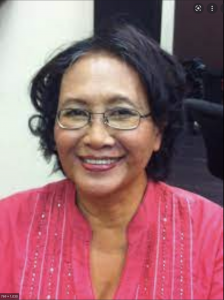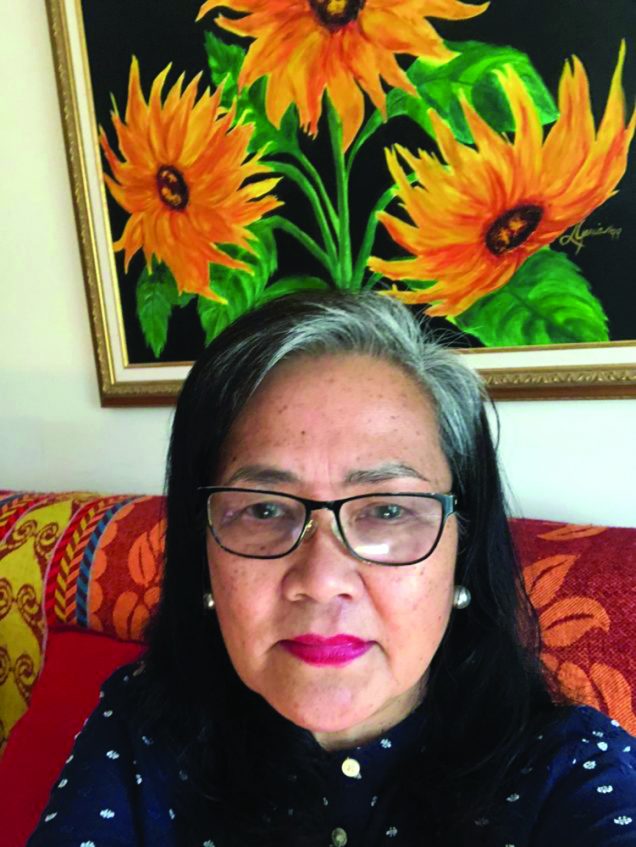Marie Hilao Enriquez, human rights defender and social justice activist
Marie Hilao Enriquez, human rights defender and social justice activist

ICON. Marie Hilao Enriquez is considered a mentor by many human rights activists and workers in the Philippines.
PHOTO FROM KARAPATAN

By Mila Astorga-Garcia Lives and Memories
I first met Marie in the 5th CSU, Camp Crame where my husband, Hermie, and about 30 others were detained as political prisoners. The year was 1975.
She was brought into our detention center along with her husband and others from a provincial camp.
Aside from both surviving cruel physical and psychological torture by our martial law captors during our first three months of captivity, Marie and I shared something else in common. She was pregnant wiith her first child, and I with my second.
Our detention centre used to be an armoury. We could still smell gunpowder inside our cells that were made with thick concrete walls and heavy steel doors, and only a small horizontal opening for a window high up near the ceiling. Thus the air was stale and unhealthy. We were only allowed 5 minutes of fresh air and sunlight, not even every day.
Marie and I were determined to do everything possible for our release with the babies. We also agreed we would fight every attempt to separate our babies from us, as our jailors had earlier said the babies will be sent to relatives or to the Department of Social Welfare. We were prepared to invoke our constitutional right as physically and mentally fit mothers to take care of our babies and nurse them to good health.
Marie was very caring and selfless, always thinking of the welfare of other people before herself. With her medical background, she would always share and apply whatever knowledge and skills she had regarding natural healing and wellness, using different modalities like acupuncture and herbal medicine.
When Marie’s bag of waters broke and her labor pains started, to our pleasant surprise, mine broke as well, so we were in labor at the same time. We were brought to the camp hospital where our babies were born a few hours apart, mine in the evening, Marie’s the next morning.
Upon our return to the detention centre, we and other detainees planned a hunger strike for our release. In case the babies’ milk supplies would be confiscated during the hunger strike, Marie led us women in packing milk powder inside Christmas balls that we had tied up with macramé and crocheted strings all over our tarimas or steel double beds as part of our holiday decoration.
True enough when the prison authorities learned about the hunger strike, they raided our cells and took out all our provisions, including the babies’ milk. They shut off the electricity, and demanded that we end the protest action.
On New Year’s eve, drunk officers and soldiers of the CSU barged into some of the male detainees’ cells and brutally beat them that we could hear their cries of pain.
We were unsuccessful in that first hunger strike because we were an isolated few – locked up inside our cells, without media and coordinated support from outside.
Fortunately the next year, we were transferred to Camp Bagong Diwa in Bicutan, Taguig, Rizal. Bicutan detention centre. Detainees from other detention centress were transferred there so we reached 140-strong.
With our large numbers, a bigger hunger strike was launched, but this time with the knowledge of media thru relatives and other supporters, and in coordination with other detention centres where detainees also launched their sympathy hunger strikes. We agreed we would end our hunger strike only when the two nursing mothers would be released with the babies. We also demanded better prison conditions.
The hunger strike went on for two weeks, with many collapsing due to dehydration that they had to be brought to the hospital for medical attention. This alarmed the authorities. Local and international media were covering the event, relatives and friends came everyday, priests and nuns were there praying for us. It was already very embarrassing for the authorities that then Defense Minister Carmelo Barbero was forced to come over to talk to us to stop the hunger strike. We won: we nursing mothers were released with our babies, and better detention conditions were granted. We won because there was strong solidarity among the detainees and strong support from outside.
These were the struggles Marie and I had shared as detained nursing mothers. Throughout all these, Marie was a pillar of strength and courage that made everyone with her and around her just as brave and uncompromising as she was.
After our release, Marie worked as a human rights activist, founded organizations that campaigned for the release of political prisoners and supported victims of human rights abuses, and I worked as a researcher and journalist. Marie kept in touch, sometimes visiting me at home, especially when she learned I had already my third child, and still Hermie remained in political detention. She was always concerned about our situation, just as she was concerned with other former detainees and their families, while at the same time actively working for the release of others.
Upon Hermie’s release, he also worked as a journalist but after a few years, we decided to migrate to Canada with our three children, especially with the continuing harassment we were still experiencing even while trying to live normal lives.
When her international human rights work would bring her to Canada for speaking engagements and meetings, Marie would visit us and even stay with our family, especially during our early years as struggling immigrants. She would visit Canada many more times as head of Karapatan to speak in forums on human rights in the Philippines sponsored by church and solidarity groups. In the Philippines, she worked hard with others so that victims of human rights violations would be granted compensation. She advised and encouraged survivors and their families to apply for what was due them even if this was far less than what they had deserved. This she did, even as she had opted not to apply for herself, as a matter of principle. She spoke openly about her frustration with the system by which the compensation process was implemented, which she had strongly felt was far from fair and just, as this had left out a number of deserving survivors and their families.
Most importantly, she believed, nothing would ever compensate her and her family for the brutal torture and killing of her sister, Liliosa Hilao, in the hands of the military. (Liliosa is known as one of the first martyrs killed in captivity by Ferdinand Marcos’s martial law regime.)
That was Marie, always uncompromising, courageous and selfless. She dedicated her life until the end for the promotion and protection of the human rights and welfare of others, and for the fight for social justice.
Mabuhay ka, Marie!
Comments (0)